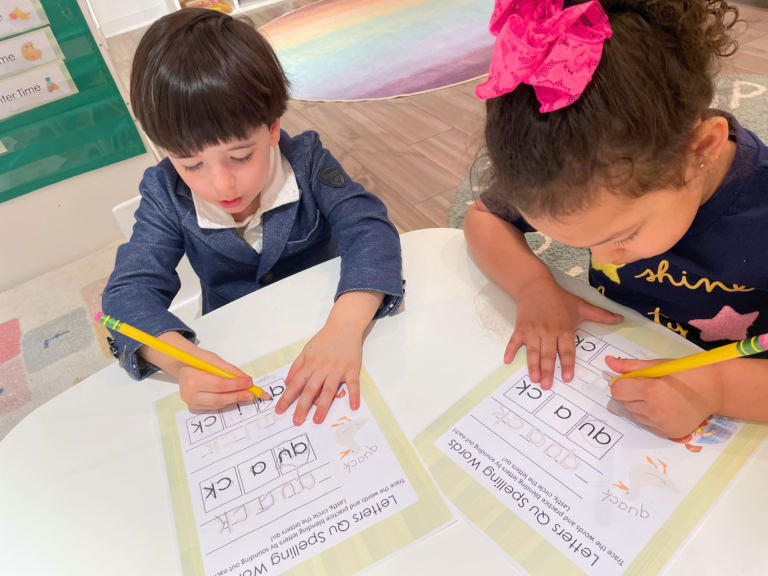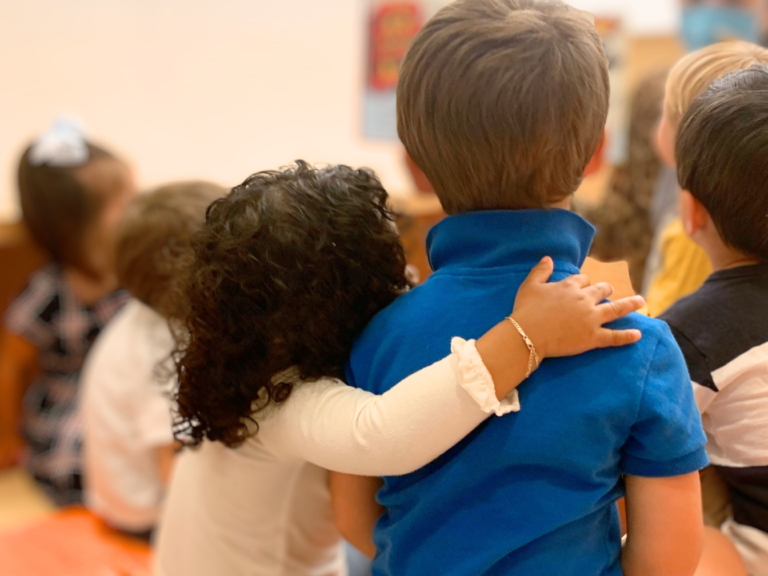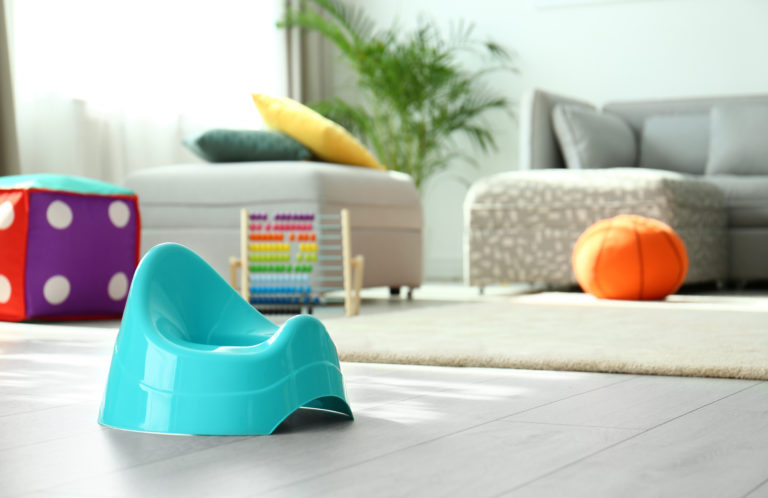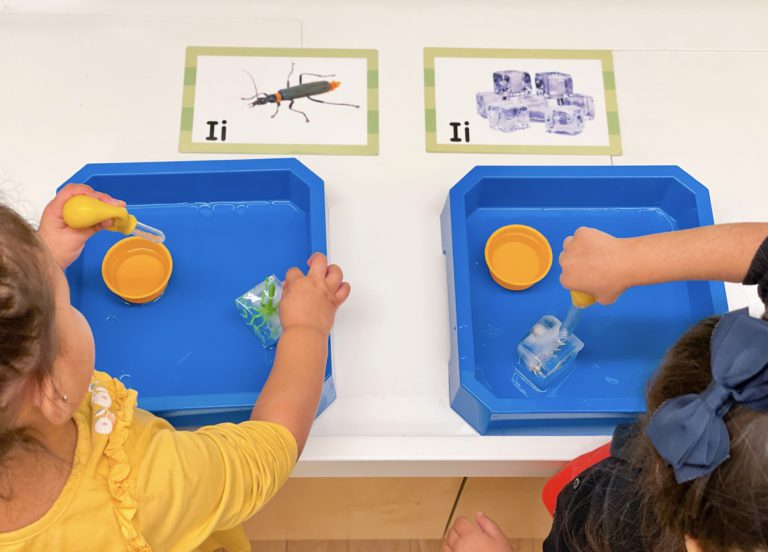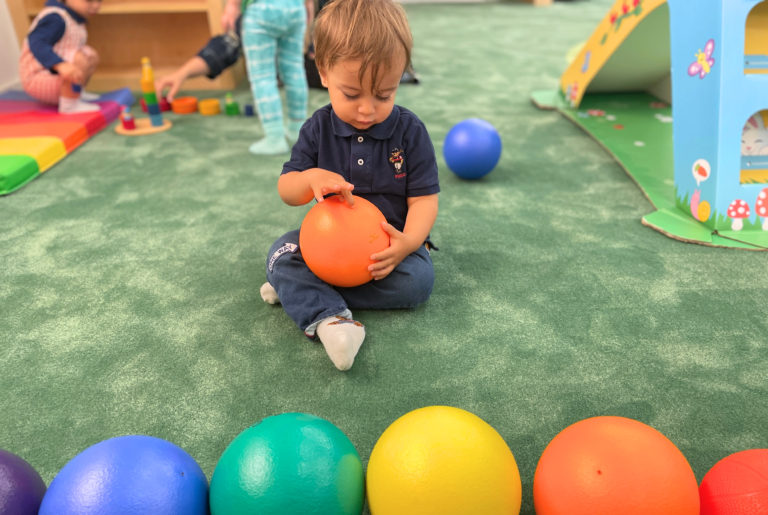Talking About 3 Big Emotions with Little Ones
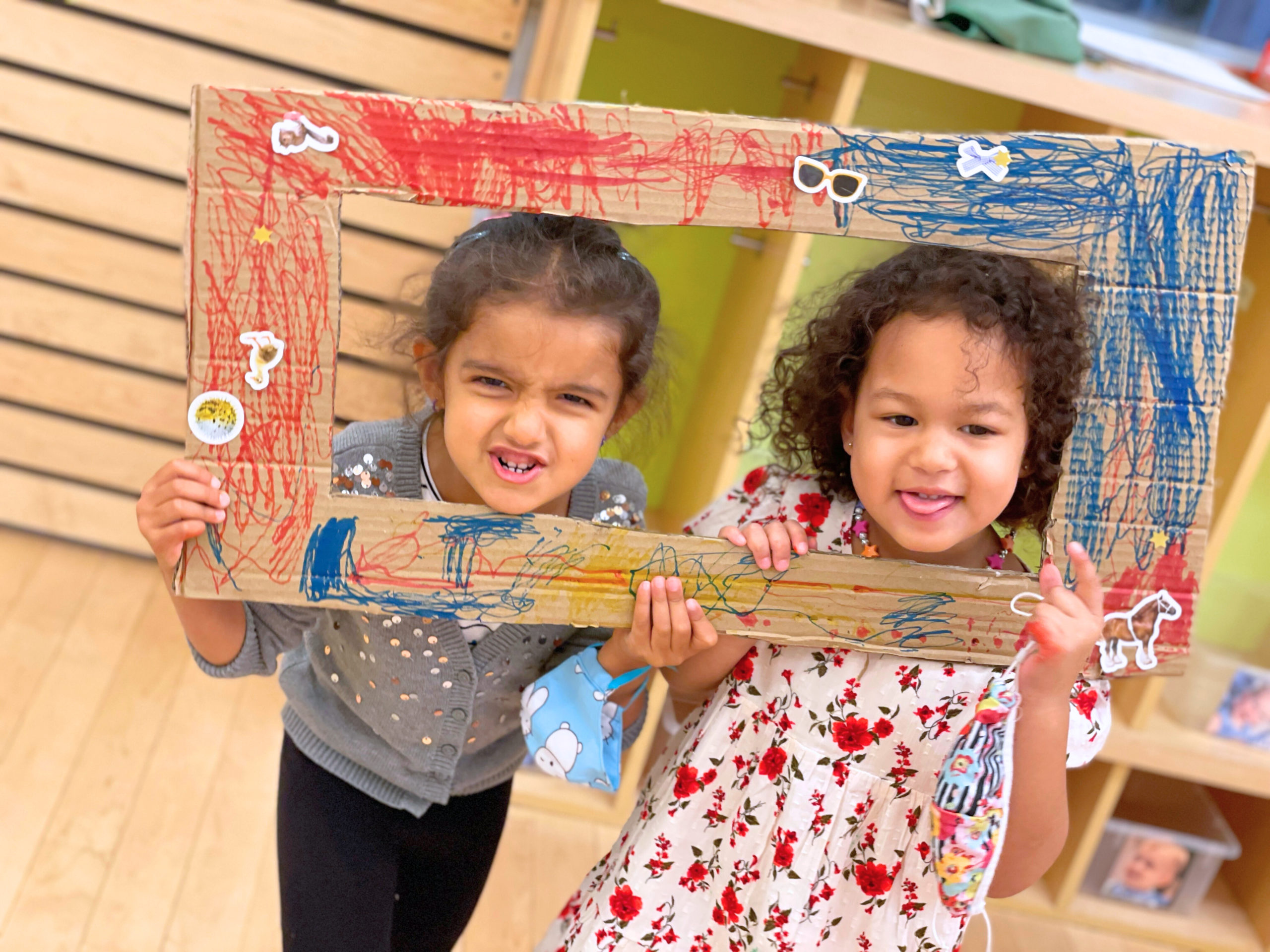
Understanding the complexities of emotions is critical for little ones’ social emotional learning and child development — learning about their emotions and why they feel them is just as important as anything they will learn in school. The feelings we all have as we get older inform us how to respond, but little ones don’t have a lot of past experiences to base their feelings off of, so they simply react.
One of the most important things to teach our little ones at the start of their social emotional learning journey is that these big feelings are totally normal and temporary. Behavioral therapist Dr. Jamie Gleicher, L.M.S.W., says “the message should always be: you have feelings, this is how they look, it’s OK to feel and no emotion is ever permanent.”
Because emotions during child development are so complex, some of the most common big feelings are a great place to start some social emotional learning; anger, sadness, and fear. One of the best things we can do when teaching about feelings is to remove judgment from what we often consider “negative emotions.” Feelings are a natural response; everyone experiences these feelings, and no one should be judged for having a natural response to something.
ANGER – a strong feeling of annoyance, displeasure, or hostility.
While it is often categorized as a negative emotion, anger is, in fact, a very informative feeling. It’s important to identify it as such rather than putting a judgment on it within your little one’s social emotional learning and child development. Saying things like “don’t be mad” only invalidates a person’s natural reaction and places shame on that emotion. When little ones are angry, they will cry, throw or hit things because they are reacting to something that hurt them or made them frustrated. Punishing them or even making fun of their unregulated reactions also places shame on these very real feelings and is not conducive to a supportive and safe environment for their social emotional learning. Instead, when you suspect your little one is angry, talk about it together. These feelings can be very isolating, so being present with them while they feel them can make working through big emotions a lot more doable.
Start by identifying the feeling with your little one, maybe saying something like “it looks like you’re really mad.” Suggesting what they may be feeling rather than telling them how they are feeling opens up the conversation and also gives your little one the chance to share their experience; they may not even be feeling mad! Many other big feelings can cause outbursts, so give them the chance to define it in their own way.
Dr. Gleicher clarifies that building your little one’s emotional vocabulary is key in their child development and teaching them how to understand and regulate their big feelings; “they need a word to associate with a feeling so they can use their words to express rather than react.”
It’s also important to share our own experiences with big feelings with our childrend. Saying “I can get really frustrated and mad when things do not go the way I want them to; it helps me to take a breath and tell people how I am feeling with my words. Would you like to try?” If they need help getting started, give them a framework for this social emotional learning: “I feel __ when __.”
SADNESS – feeling down or unhappy in response to grief, discouragement or disappointment.
Odds are we have all experienced disappointment and sorrow at some point in the past few years, and that includes our little ones. Sadness is an important emotion to identify and understand because it has the potential to become anger. It is also a very recognizable emotion, meaning we can often tell when other people are sad because we usually “act” sad similarly: we cry, sulk, seek comfort, etc.
When it comes to working through sadness with your little one, soft is strong — share about a time you experienced sadness, maybe even when you were your little one’s age. How did you cope? What did you need when you were feeling that way? Maybe you needed to cry it out, or maybe cuddles from your grown-ups made you feel better. Sharing these experiences is a great way to bond and build trust in your relationship with your child. “Fixing the feeling” instead of working through the feelings is like putting a bandaid on a broken leg. If their emotions are constantly muted or ignored throughout their child development, little ones learn that is how they have to deal with sadness and other big feelings, which can result in deeper mental health issues as they grow up.
A helpful tool for children as they learn to “use their words” in their social emotional learning is a feelings chart with faces expressing all different emotions — they can point to a face that corresponds with what they are feeling and you can talk it out from there. Little ones always do well with options because, once again, they are building their emotional vocabulary when it comes to big feelings.
FEAR – caused by the belief that someone or something dangerous, painful, or threatening.
A lot of our little ones have experienced the aftermath of the pandemic, or may have even lived their first year through it. They may have heard news updates or even seen something scary happen in front of them. Validating the feeling instead of downplaying it or saying ”don’t be scared,” allows your little one to feel safe and seen within their child development. Sharing your own feelings about the situation and being open to questions about it can also help them feel supported while experiencing fear. Sometimes just saying the things they are afraid of out loud can help lift some of the heaviness they may feel. Reading stories and roleplaying with your little ones can also help them understand how to work through their own fears.
Laying a foundation of open communication, like in any other relationship, allows for trust to build and creates a safe space for your child to share and experience big feelings as they begin their social emotional learning journey!
Popular


Hi, I'm Miss Julia!
Miss Julia has been an early childhood educator for 5 years, with over 10 years of experience working in childcare. She has been teaching at Playgarden Prep since 2017, and is happy to share ideas on some of her favorite early education topics with you! Miss Julia has a BA from UC Irvine, and uses her experience in performing arts to inspire little ones every day in her enrichment classes at Playgarden. In her free time, Miss Julia loves enjoying nature, cooking, and creating with friends.

